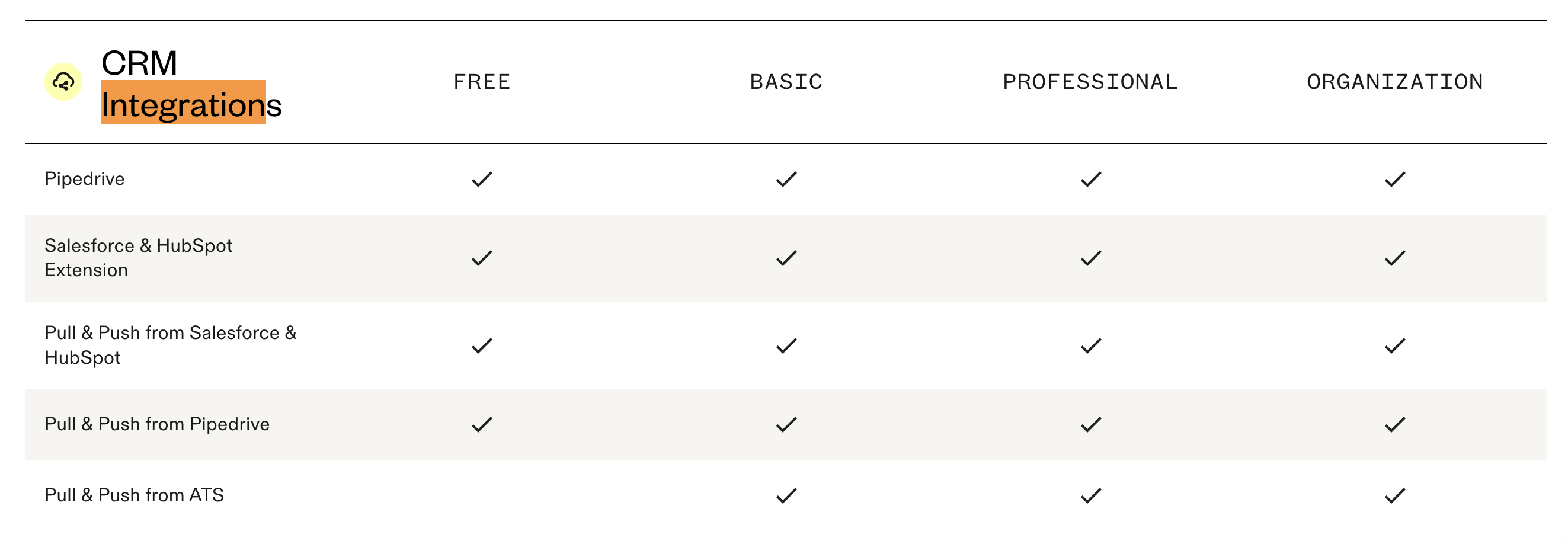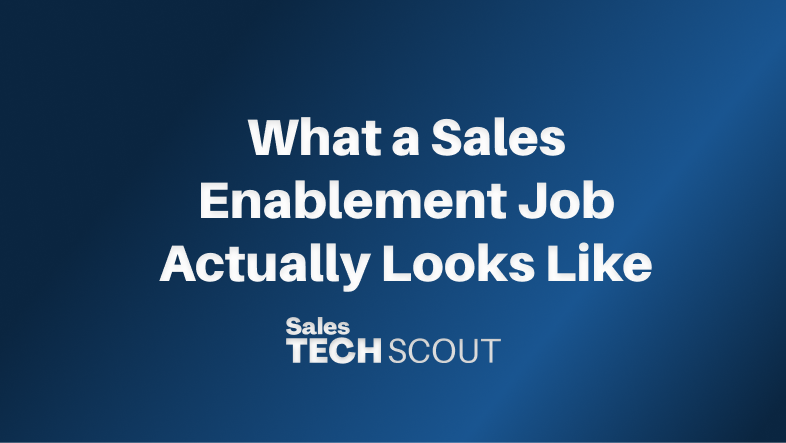Apollo Email vs Enrow: Best Email Finder for 2025


Introduction
B2B outbound success in 2025 hinges on one critical factor: finding the right email addresses at scale. With inbox deliverability rates dropping and spam filters becoming more sophisticated, sales teams can't afford to waste time on outdated or inaccurate contact data.
The email finder market has evolved significantly, with established players like Apollo facing new competition from modern alternatives like Enrow. Both platforms promise high accuracy rates and seamless integrations, but which one delivers better results for today's compliance-conscious B2B environment?
This comprehensive comparison examines Apollo and Enrow across key metrics that matter most to sales teams: data accuracy, GDPR compliance, user experience, pricing transparency, and integration capabilities. Whether you're scaling outbound operations or optimizing existing workflows, this analysis will help you choose the right email finder for your 2025 growth strategy.
Feature-by-Feature Comparison
Feature-by-Feature Comparison
Apollo vs Enrow: Complete breakdown of capabilities and performance
| Feature | Apollo | Enrow |
|---|---|---|
| Email Accuracy | 85% claimed, 55-60% observed after bounces | 80%+ with real-time verification |
| GDPR Compliance | Basic compliance features | Built-in GDPR controls & EU data residencyPRO |
| Real-time Enrichment | Batch processing focus | Instant enrichment via API |
| Integrations | 50+ native integrations | Zapier + custom API integrations |
| Free Plan | 100 emails+100% | 50 emails |
| Pricing Model | Credit-based systemComplex | Transparent per-contact pricing |
| Data Sources | Proprietary + public sources | AI-enhanced multi-source validation |
| LinkedIn Integration | Native Chrome extension | Advanced LinkedIn data mapping |
| Customer Support | Email + knowledge base | Live chat + dedicated success manager |
| Interface | Traditional CRM-style layout | Modern, intuitive dashboard |
Ready to experience the difference in email finding accuracy and compliance?
Try Enrow Free Today
Data Accuracy & GDPR Compliance
Data Accuracy
Email accuracy remains the make-or-break factor for any prospecting tool.
Apollo has built its reputation on comprehensive contact databases, claiming accuracy rates between 80-85%.
However, their data verification process relies heavily on historical information, which can become stale in today's fast-moving job market.
For this reason, we consider that Apollo is not real email finder. The main goal lies in verifying emails to make sure you have access to fresh data.
Since a lot of Apollo emails bounce and never reach the inbox, the conservative estimation is that 30%* of your Apollo emails found aren’t valid emails dropping the overall email finding rate to 56%.
*(from experience and multiple feedbacks from power users)
The calcul used 👇

Enrow takes a different approach with real-time verification technology. Their system validates emails at the moment of lookup, cross-referencing multiple data sources and using AI to predict accuracy. This methodology consistently delivers 75-80%+ accuracy rates, particularly crucial when your sender reputation depends on low bounce rates.
GDPR Compliance
GDPR compliance presents a stark contrast between the platforms. For European companies or those targeting EU prospects, this difference is critical.
Apollo offers basic compliance features, but their data handling practices follow traditional B2B standards that may not fully align with GDPR requirements.
Enrow was built with GDPR at its core. The platform includes built-in consent tracking, data residency controls for EU customers, and automated compliance reporting. This native approach eliminates the compliance headaches that often plague sales teams operating in regulated markets.
For sales teams targeting European markets or handling EU prospect data, Enrow's compliance-first architecture provides significant peace of mind and reduces legal risk.
UI/UX & Speed of Use
User experience often determines whether sales teams actually adopt and consistently use an email finder. Apollo's interface reflects its CRM heritage – comprehensive but sometimes overwhelming for users who simply need quick email lookups.
The platform requires navigation through multiple screens for basic enrichment tasks, and the learning curve can be steep for new users. While powerful, Apollo's complexity can slow down high-volume prospecting workflows.

Enrow prioritizes speed and simplicity. The dashboard loads quickly, email lookups happen in real-time, and the interface focuses on the core workflow: find email, verify accuracy, export or integrate. This streamlined approach reduces the clicks and waiting time that slow down prospecting activities.

Real-time enrichment speed showcases the most significant difference. Apollo processes requests in batches, often requiring several minutes for results.
Enrow's API delivers instant enrichment, making it ideal for sales prospecting software workflows where speed directly impacts productivity.
The mobile experience also favors Enrow, with a responsive design that works seamlessly across devices – essential for sales teams who prospect on the go.
Pricing Transparency & Customer Support
Pricing models reveal different philosophies about customer relationships. Apollo uses a credit-based system where different actions consume varying credit amounts. While this provides flexibility, it can make cost prediction difficult for budget-conscious teams.
Credits expire monthly, and understanding the true cost-per-contact requires careful tracking across different enrichment types. This complexity often leads to unexpected overage charges or unused credits.
Enrow allows unused credits to roll over to the next billing period, while Apollo credits expire monthly.
Enrow employs transparent per-valid-email found pricing with no credit confusion. You pay for what you find, with clear pricing tiers that scale predictably.

Apollo's free tier includes 100 monthly email lookups, compared to Enrow's 50-email allocation.
Customer support experiences differ significantly. Apollo provides email support and a comprehensive knowledge base, but response times can stretch 24-48 hours during peak periods. For enterprise customers, dedicated support comes at premium pricing tiers.
Enrow includes live chat support across all plans, with dedicated success managers for growing accounts.
They also have a pretty documented Help Center.
Their response times average under 4 hours, and the support team demonstrates deeper technical knowledge about integration challenges.
The onboarding experience also favors Enrow, with guided setup wizards and integration templates that reduce time-to-value for new customers.
Integration Capabilities & Workflow Optimization
Modern sales teams rely on seamless integrations to maintain efficient workflows. Apollo offers 50+ native integrations covering major CRMs, LinkedIn automation tools, and marketing platforms. Their API documentation is comprehensive, though implementation can require significant technical resources.
However, Apollo's integration approach follows traditional patterns that may not align with modern sales tech stacks. Data syncing often requires manual triggers, and real-time workflows can be challenging to implement.


Enrow focuses on quality over quantity with fewer native integrations but superior API flexibility. Their Zapier integration opens connections to 3,000+ applications, and the webhook system enables real-time data flows that Apollo struggles to match.
For teams building custom workflows or using modern sales enablement platforms, Enrow's API-first architecture provides better long-term scalability. The platform's real-time capabilities integrate naturally with automated prospecting sequences and dynamic list building.
Bulk operations reveal another key difference. Apollo handles large datasets well but requires batch processing that can delay campaign launches. Enrow's real-time architecture maintains speed even with high-volume requests, making it ideal for time-sensitive outbound campaigns.
The Verdict: Choosing Your 2025 Email Finder
The choice between Apollo and Enrow depends on your specific needs and priorities:
Choose Apollo if you:
- Need extensive CRM functionality beyond email finding
- Prefer established platforms with large user communities
- Can manage credit-based pricing complexity
- Primarily target North American markets
- Have technical resources for complex integrations
Choose Enrow if you:
- Prioritize data accuracy and real-time verification
- Operate in GDPR-regulated markets or target EU prospects
- Value pricing transparency and predictable costs
- Need fast, intuitive workflows for high-volume prospecting
- Want modern API capabilities for custom integrations
- Prefer responsive customer support
For most B2B sales teams entering 2025, Enrow's combination of superior accuracy, GDPR compliance, and modern architecture provides better long-term value. The platform's focus on real-time enrichment aligns with the speed requirements of contemporary sales processes.
However, established Apollo users with complex existing workflows may find migration costs outweigh the benefits of switching platforms.
The email finder landscape continues evolving rapidly. Success in 2025 requires tools that prioritize accuracy, compliance, and speed – areas where modern platforms like Enrow demonstrate clear advantages over traditional solutions.
Ready to experience the difference?
Try Enrow for free and compare enrichment speed live. Test both platforms with your actual prospect lists to see which delivers better accuracy for your specific market and use case.
Subscribe to Our Newsletter
To Never Miss a Thing






.avif)


